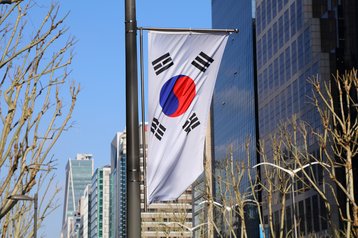The government of South Korea has announced a 26 trillion won ($19 billion) funding package for the country’s chip making companies.
According to a statement from President Yoon Suk-yeol, the package will support the sector’s financial, infrastructure, and research and development needs, in addition to offering help to small and medium-sized businesses.
“As you all know, semiconductors are a field of national all-out war,” Yoon said, in comments reported by Al Jazeera.
“Winning or losing depends on who makes the state-of-the-art semiconductors with high information processing capabilities first. The state must provide support for semiconductors so that they do not lag behind competitors.”
The package is comprised of multiple funds, including a new semiconductor financial support program worth 17 trillion won ($12.5bn), which will run through the state-run Korea Development Bank. Yoon said this program would allow companies to invest “enormous amounts of money” in facilities such as new factories and line expansions.
He added that a 1 trillion won ($734m) “semiconductor ecosystem fund” would be set up to specifically support equipment makers and fabless companies to close the gap between South Korean chip makers and Taiwanese rivals like TSMC.
The government also wants to bolster the country’s aim of increasing its global market share in non-memory chips to 10 percent, up from the current 2 percent.
The South Korean government has announced a number of financial support packages targeted at its domestic semiconductor industry throughout 2024, including a plan to build what it described as the world’s largest semiconductor mega cluster in Yongin, a city south of Seoul in the country’s Gyeonggi Province.
The proposed development will span more than 21,000 sq km and see three new research facilities and 13 new chip plants built.
Speaking in January when the plan was first unveiled, President Yoon said the government had already attracted initial investments of 622 trillion won ($471 billion) to support the development – a figure that industry analyst Dylan Patel described as a “nothing burger” giving the funding was to be spread over a 23-year period and actually amounted to a reduction in annual support for the sector.
In April, a report from the Centre for Emerging Technology and Security recommended that the UK should seek to explore an “ambitious bilateral approach” with South Korea in order to shore up its semiconductor supply chain.







